Below our past blog posts have been organised against the following issues:
Ageing
Social inclusion is a determinant of mental health and wellbeing. In today’s analysis, Autumn Pierce (@otonoenespanol) of Women’s Health East (@WHEast) shares highlights from their important new report The Unheard Story: The Impact of Gender on Social Inclusion for Older Women, which explores how inequalities accumulate across the lifespan to increase the risk and impacts of social exclusion for older women.
For Anti-Poverty Week, we are focussing on older women’s disadvantage, accumulated across a lifetime. An earlier post explored how older women are now the largest demographic reliant on the Newstart Allowance, which is pushing many into crisis. In today’s post, “Lorraine”[1] generously shares her story, in her own words. Lorraine is 70 years old, currently living in private rental accommodation. She receives a full age pension and commonwealth rent assistance while also working part-time. Her story contains many of the barriers and bumps that all women face – relationship breakdown, single parenting, the need to reskill, relocation for jobs, being called upon to help with caring for ageing parents or grandbabies, and that ever-present sexually-transmitted debt. Lorraine was one of several peer researchers on Per Capita’s (@PerCapita) recent report on innovative solutions for housing precarity for older women. We are thankful to her for allowing us to share her story here.
The undervaluing of caring work is a key driver of gender inequality. In today’s analysis, Kathy McDermott of the National Foundation for Australian Women (@NFAWomen) provides a summary of their submission to the Royal Commission into Aged Care Quality and Safety. They argue that investing in social infrastructure is economically savvy, providing supports for our biggest-growing industries while also tackling the gender pay gap.
Will it soon be possible to outsource our caring responsibilities for ourselves, our children and our parents to robots? Catherine Smith and Helen Dickinson ask what the human rights, privacy, equity and practical implications for care would be in a tech-dominated future.
Older adults are highly motivated to participate in research and rate depression as a priority research topic. So why aren’t we involving them more in research and policy development? Meg Polacsek, PhD Candidate, Victoria University, considers the importance of engaging with these members of our community.
Disability
Leading health and disability researchers in Australia are calling for urgent action from State and Federal governments to develop a targeted response to COVID-19 for people with disability, their families and the disability service sector. In this post originally published by Croakey, Professor Anne Kavanagh from the University of Melbourne and Associate Professor Gemma Carey from UNSW flag risks facing people with disability in this rapidly shifting environment and set out recommendations for government to mitigate those risks.
When 60 Minutes aired a segment called ‘Does Australia really want to see the end of Down syndrome?’ in August 2017, its Facebook platform was flooded with negative comments about people with Down syndrome and their parents. Belinda Johnson and Dr Raelene West from RMIT University examined the online responses to the program and uncovered confronting views of Down syndrome as an economic burden, a medical burden and a social burden. As they worked their way through comments questioning the right of children with Down syndrome to access publicly funded disability services in light of advances in prenatal testing, for example, the authors began to question the extent to which derogatory and ill-informed comments that push people with disabilities into an exhausting and endless process of justifying their existence should be tolerated in the name of free speech. Their findings were recently published in the Journal of Sociology.
Implementation of the National Disability Insurance Scheme (NDIS) is the biggest reform to the disability sector since deinstitutionalisation. To the broader community it can be assumed that the NDIS will benefit all people with disabilities. In the week of International Women’s Day, Jen Hargrave (@Jen_Hargrave) of Women with Disabilities Victoria (WDVtweet) and University of Melbourne (@MSPHSC) and Maeve Kennedy (@mkennedy_vic) of Children and Young People with Disability Australia (@CDA39) look into the reform’s fitness to achieve gender equality now and for the next generation.
In this piece we discuss the NDIS’ capacity to provide women with greater choice and control, and a number of areas of equity and sustainability. We also examine the way the NDIS supports, or fails to support, women experiencing violence and consider the potential impact of broader gender equality measures on a market-based scheme.
Care Work
Care-giving can be a rich and complex experience that is both rewarding and challenging. Enrico Pfeifer (@EnricoPfeifer1), a PhD Candidate at the University College London, knows this first-hand. Today, he explores his doctoral research on the impact that care-giving can have on people’s health, and how we can support care-givers to stay healthy.
Ashlea Coen (@ashlea_coen) analyses LinkedIn’s “career break” interaction design and critiques how the language points to the devaluing of caring as a job in society. Ashlea is a researcher focused on the intersection of design, technology and sociology.
Education
Every young person has a right to evidence-based education to support their sexual health and wellbeing. But Australian schools continue to skirt around the S-E-X word, preach abstinence or throw some bananas and condoms in the break room and hope for the best. As Brianna Delahunty and Linnea Burton Smith from the ERA’s Young Women’s Advisory Group argue, Australians deserve inclusive, safe and respectful education that prepares them for the real world and real relationships.
Today’s blog post from Myfan Jordan (@myfan_jordan) of Grassroots Research Studio follows last week’s article describing workplace experiences for women over 40 during the pandemic: Pandemic or endemic: older women and the toxic workplace. Today, we hear the experiences of a disability educator and a healthcare worker during the pandemic. In their own words, they tell us of the psychological health and safety risks they experienced working at the frontline.
Employment
Online Food Delivery Services are a popular format for acquiring quick and easy out-of-home meals. This platform offers the perfect mix of convenience and indulgence delivered at your doorstep, but at what cost? This week, VicHealth (@VicHealth) Postdoctoral Research Fellow Dr. Adyya Gupta (@AdyyaGupta) from Deakin University (@IHT_Deakin @GLOBE_obesity) discusses the ripple effects of Online Food Delivery Services on human and planetary health, and offers policy actions for a healthy and sustainable future.
For Anti-Poverty Week 2023, Dr Ana Gamarra Rondinel [@AnaGamarraRondi] Melbourne Institute: Applied Economic & Social Research [@MelbInstUOM] and Life Course Centre (@lifecourseAust) and Dr Anna Price The University of Melbourne [@UniMelb] and Centre for Community Child Health, Murdoch Children's Research Institute [@MCRI_for_kids] explore the interplay between first time parenthood, financial security, and early child development.
This year marked the 75th year of Australia’s Adult Migrant English Program (AMEP). It also saw the release of the largest study in the AMEP’s history to better understand participation in the program, and the AMEP’s broader impact on employment and welfare outcomes. Associate Professor Francis Mitrou and Dr Ha Nguyen from Telethon Kids Institute (@telethonkids) and Life Course Centre (@lifecourseAust) outline some of the key findings.
Environment
Katie Moon, Sophie Yates, Maureen Thompson and Corey Callaghan have recently published some research in People and Nature about frogs, citizen science, and agential realism. Here they explore their findings about how we can think more relationally in the field of citizen science.
In this short but powerful piece, PhD scholar and ANZSOG researcher Patrick Lucas (@paustinlucas) discusses how nature is valued in very different ways by different social groups, and how current policy frameworks struggle to account for this diversity. He explores the emerging framework of “relational values” and its potential to lead to more equitable and just outcomes in biodiversity conservation.
The concept of carbon neutrality - a net zero release of Carbon Dioxide (CO2) into the atmosphere - has circulated in our society over the last few decades [1]. The current levels of CO2 emissions have proven links to global warming and climate change. It is also well known that this phenomena is directly connected with the use of fossil fuels in industry, energy production, transportation, agriculture, construction and other human activities. The risk of climate change related natural disasters has seen governments, NGOs and institutions around the world to take actions towards mitigation. In this blog, Dr Fallas-Chinchilla reflects on the hidden environmental costs of transport electrification and asks – what are the environmental costs of the current strategy for offsetting carbon and could we be doing environmentally better whilst striving for carbon neutrality?
Family
Deb Tsorbaris (@DebTsorbaris), CEO of The Centre for Excellence in Child and Family Welfare (@CFECFW), discusses the recently launched national wellbeing framework, Measuring What Matters, and contends that if we're serious about enhancing the wellbeing of Australians, the first place to start is with our children and young people.
Aboriginal academic Dr Sharynne Hamilton describes how her research co-partnership with Elders in the Perth Aboriginal community has lead to a clear path of action to achieve justice in child protection grounded in respect, and commnunity control.
New research shows households with young children are feeling the highest level of stress as a result of the COVID-19 pandemic. This is highest for families in communities that experience moderate levels of poverty. Professor Abigail Payne from the University of Melbourne discusses what needs to happen to ensure families are not left behind as we look ahead to the COVID-19 economic recovery.
Gender
Dr Adrian Bazbauers (@AdrianBazbauers) of the Public Service Research Group, UNSW Canberra discusses his new analysis of how multilateral development banks approach gender.
Today’s blog post from Myfan Jordan (@myfan_jordan) of Grassroots Research Studio follows last week’s article describing workplace experiences for women over 40 during the pandemic: Pandemic or endemic: older women and the toxic workplace. Today, we hear the experiences of a disability educator and a healthcare worker during the pandemic. In their own words, they tell us of the psychological health and safety risks they experienced working at the frontline.
Health
Online Food Delivery Services are a popular format for acquiring quick and easy out-of-home meals. This platform offers the perfect mix of convenience and indulgence delivered at your doorstep, but at what cost? This week, VicHealth (@VicHealth) Postdoctoral Research Fellow Dr. Adyya Gupta (@AdyyaGupta) from Deakin University (@IHT_Deakin @GLOBE_obesity) discusses the ripple effects of Online Food Delivery Services on human and planetary health, and offers policy actions for a healthy and sustainable future.
This year, Anti-Poverty Week 2024 (13-19 October) continues its campaign to end child poverty in Australia. Dr Bonnie Searle (@BonnieSearle3) from The University of Queensland (@UQ_News) and the Life Course Centre (@lifecourseAust) has been examining meals in early childhood centres for children experiencing poverty, and how ensuring the quality and quantity of the food can help children thrive from an early age.
By focussing on the health impacts of climate change, health professionals can play a vital role in framing the need for climate actions in a way that is more personally meaningful and less controversial for the public and policy makers. Today’s post by VicHealth postdoctoral research fellow Rongbin Xu (@RongbinXu) of Monash University (@MonashUni) explains how, and why this is important. This piece originally appeared in the Medical Journal of Australia’s Insight+ online magazine; you can read it in its original form here.
Housing and homelessness
This week's posts are being sourced by the Life Course Centre(@lifecourseAust) to continue to the conversation on social and economic disadvantage following last week’s Anti-Poverty Week (@AntiPovertyWeek). Today @lifecourseAust researchers share approaches that could help end child poverty in Australia.
With the NDIS Amendments Bill 2024 open for submissions until the end of the week, today’s post, written by Muriel Cummins, critiques the potential impact of the Bill on some of the most marginalised NDIS recipients – people living in private supported boarding houses. Muriel raises concerns from her reading of the Bill and NDIS reform more generally, and the potential of these policy and legislative changes to further erode the rights of people living in these modern-day institutional settings.
Human rights
Children and young people are essential voices and forces for change in public health, yet they are not included in climate discussions and decision-making. In today’s post, public health researchers from Deakin University’s Institute for Health Transformation (@IHT_Deakin) Grace Arnot (@GraceArnot), Dr Hannah Pitt (@HannahLPitt) and Dr Simone McCarthy (@SimoneNicoleM) highlight the important knowledge and experience that children and young people have, and call for their greater inclusion in climate decision-making and public health governance.
While it has been anticipated for several years now, the Religious Discrimination Bill 2021 is already making headline news for failing to protect individuals from discrimination based on religious belief. In today’s analysis, Helen Dalley-Fisher and Toni Hassan (@ToniHassan) of the Equality Rights Alliance (@ERAAustralia) provide a summary of ERA’s submission that explains how the Bill will undermine gender equality. Portions of this analysis also previously appeared in the Canberra Times.
Indigenous issues
Strong leadership has been key in the successful COVID-19 response by Australia’s Indigenous communities – for Indigenous LGBTIQ+ communities to thrive, leadership requires more nuance. In this blog post, Péta Phelan calls for a more nuanced understanding and leadership from government, Indigenous health organisations and health professionals.
In today’s post, Dr Simone Casey takes a close look at the underpinnings of ParentsNext, a widely-criticised program that aims to encourage eligible parents to plan and prepare for employment by the time their children start school. Dr Casey is an Associate of the RMIT Future Social Services Institute and this post draws on her research into resistance in employment services and the construct of the welfare subject
If we believe in a society that is just and equitable, and where the rule of law is both respected and effective in maintaining such a society, then our criminal justice system is failing us in achieving these aims. In today’s post, Helen Forster of Good Shepherd Australia New Zealand proposes basic principles for addressing shortcomings in how the criminal justice system interacts with women, and proposes that innovative health justice partnerships offer a promising corrective.
International aid and development
The World Bank reports that nearly 2.4 billion women globally do not have the same economic rights as men. Women are more likely to be impoverished than men, and these disparities are more pronounced in countries in the Global South. Even though international policies have been developed to promote gender equality, their impact is uneven. In today’s piece, Hilda Aboagyewaa Agyekum, PhD candidate at the Crawford School of Public Policy, ANU, examines the influence of culture and context on the interpretation and implementation of gender policies, drawing on examples from Africa.
Dr Adrian Bazbauers (@AdrianBazbauers) of the Public Service Research Group, UNSW Canberra discusses his new analysis of how multilateral development banks approach gender.
Dr Kim Moloney (@Global_Academic) of Hamad Bin Khalifa University shares a preview of her new book Who Matters at the World Bank: Bureaucrats, Policy Change, and Public Sector Governance, which tells the story of civil servant influence and the rise of public sector reform at the World Bank (read a sample chapter here).
Law
As the NSW parliament prepares for the introduction of a bill to decriminalise abortion in that State, Ashlee Gore writes that many believe abortion is already legal and freely available in NSW, and that while decriminalisation will be important for women’s choice and autonomy, there will remain many other medical, social and interpersonal barriers that restrict the exercise of this autonomy after the law has changed.
*Content warning: This post contains references to sexual violence.*
A recent Victorian court decision to release a teenager charged with sexual assault on strict bail conditions has prompted an outcry from Victoria Police and the state opposition. Today's post from an anonymous Australian lawyer challenges us to consider a more progressive legal and moral standpoint- from an anti-carceral feminist perspective, imprisonment for the sake of harsh punishment will not lead to the teenager's reform and rehabilitation.
Tomorrow is Human Rights Day. Each year the international community commemorates that day in 1948 when the United Nations General Assembly adopted the Universal Declaration of Human Rights. Australia played a leading role in its development and reach. On its 68th anniversary, Patrick Emerton from the Castan Centre for Human Rights Law reminds us why human rights are more important than ever, and why governments must not forget their role.
Prisons
Today’s post is from Megan Beatrice (@megbeatrice), who is pursuing her PhD in Law at RMIT. Using the lens of intersectionality, Megan urges us to go beyond bail reform and think about how we can address the deep colonial practices embedded within the criminal justice system.
Over half of the people in Australian prisons have been incarcerated before, which means that interventions to help people stay out of prisons are crucial. If people find employment after they are released, they are less likely to return to prison. Here Dr Caroline Doyle, Dr Sophie Yates, Professor Lorana Bartels, Dr Helen Taylor and Associate Professor Anthony Hopkins discuss their research into the employment experiences of people released from prison in the ACT.
n today’s blog post Robyn Oxley from the University of Western Sydney discusses ways to look beyond punishment as a way to address crime, with a specific focus on Aboriginal and/or Torres Strait Islander people. She argues that defunding police and abolishing prisons are not radical ideas when funds can then be re-directed towards areas that improve social issues such as housing, health, education and employment, which in turn reduce incarceration rates.
Refugees and asylum seekers
Camps are dynamic, culturally significant spaces. New research from the University of Newcastle proposes the significance of these cultural practices may provide an alternative pathway to protection.
This year marked the 75th year of Australia’s Adult Migrant English Program (AMEP). It also saw the release of the largest study in the AMEP’s history to better understand participation in the program, and the AMEP’s broader impact on employment and welfare outcomes. Associate Professor Francis Mitrou and Dr Ha Nguyen from Telethon Kids Institute (@telethonkids) and Life Course Centre (@lifecourseAust) outline some of the key findings.
The announcement, which fulfils a Labor election commitment, brings much-needed certainty to around 20,000 people who were found to be refugees or at risk of serious human rights violations. This article was first published on The Conversation.
Social inequalities
The term ‘transitional justice’ encompasses a wide range of initiatives and mechanisms to address legacies left by human rights atrocities committed amidst situations of armed conflict or in transitions from autocratic to democratic rule. Mechanisms like the South African Truth and Reconciliation Commission, The International Criminal Tribunals for Rwanda or the Former Yugoslavia (ICTR/ICTY) or Timor Leste’s Commission for Reception, Truth and Reconciliation in East Timor (CAVR in Portuguese) are among some of the most internationally known transitional justice processes. In this blog post Dr Louis Monroy-Santander explains the need to prioritise local voices in peacebuilding.
The social determinants of health is a concept that is widely understood in public health circles – access to education, housing, healthcare and income can have a profound impact on the health of individual and societies. But what are commercial determinants of health? In today’s piece, VicHealth (@VicHealth) Research Fellows Alexandra Chung (@Chung_Alexandra) of Monash University, Florentine Martino (@fp_martino) of Deakin University, and Jennifer Lacy-Nichols (@JLacyNichols) of the University of Melbourne explain how commercial actors influence health and argue for prioritisation of health over profits.
Good nutrition is a requisite for good health; examining the systems that enable some populations to eat well while others struggle has traditionally been examined using a social determinants of health lens. In today’s post, VicHealth postdoctoral researcher Christina Zorbas (@CZ_Christina) of Deakin University (@IHT_Deakin) teams up with Chat GPT to propose how power theories may illuminate inequities in food access and nutrition.
Social welfare
Last week, an important research report was launched by the National Social Security Rights Network. Entitled "How well does Australia’s social security system support victims of family and domestic violence?", author Sally Cameron lays out the many and complex ways the welfare system too often increases women’s financial insecurity following a separation due to domestic violence, and in the process compounds trauma. Today’s blog post provides a summary of the main findings from the report.
In this article, Dr. Shelley Bielefeld, Professor Eva Cox, and the Accountable Income Management Network Secretariat critique the Mindaroo Foundation’s report on the Cashless Debit Card (CDC). They cite the ‘cherry picking’ of results to support claims of success, a lack of attention to human rights, and security issues, among other points. Ultimately, they argue that the benefits of the CDC for communities are “negligible to negative” and that the proposed expansion of the trial would further marginalise those purported to benefit from the CDC.
Two very significant studies were published in May. On the face of it they had little relation to each other, but together they have shattered powerful myths that have brought our social policy to the point of crisis. In this post, Atif Shafique explores what all this might mean, and how we can use this moment to redesign social policy for the better. This post originally appeared on the RSA blog.
Urban planning
In this piece, UK-based social affairs journalist Saba Salman (@Saba_Salman) considers what a truly accessible city would look like and explores some innovations currently underway to create such a city into the future. This piece is a re-post from Saba's blog, The Social Issue.
Australia has a housing affordability problem. There’s no doubt about that. Unfortunately, one of the reasons the problem has become so entrenched is that the policy conversation appears increasingly confused. It’s time to debunk some policy clichés that keep re-emerging.
This week the national broadcaster's current affairs programs have focused on Australia's rapid population growth, particularly in Sydney and Melbourne. Discussion has highlighted the policy and planning challenges posed for governments and communities when population growth outstrips infrastructure planning. Few regions are grappling with these challenges in the quite the same way as Melbourne's west.
In this piece, Rodney Maddock presents a three-pronged approach that considers changes to planning laws, transport improvements, and creation of decentralised employment hubs to meet Melbourne's growth challenges across the West.
Violence against women
In today’s blog, Phoebe Nagorcka-Smith (@PNagorckaSmith) explores what the Royal Commission into Violence, Abuse, Neglect and Exploitation of People with Disability had to say about family and domestic violence.
Mental Health
Today Maria Katsonis, a mental health advocate with lived experience of mental health issues, discusses the complexity of including lived experience in mental health reform, warning that organisations and policymakers must be willing to share power if the promise of lived experience is to be realised.
In this week’s blog, Simon Katterl writes about Victoria’s proposed anti-vilification laws and their implications for vilification in mental health.
Within mental health research and service delivery, involvement of experts by experience has become increasingly common. The involvement of experts by experience allows for the design and delivery of research that is of higher quality and more rigorous.
Transitioning out of youth-focussed lived experience groups is a matter that is not well understood and, for many reasons, complex. It can be difficult to transition from the role of being a young contributor to research into a professional in the Public and Patient Involvement space. Working in lived experience roles, either as ‘lived experience practitioners’, ‘peer support workers’, ‘PPI facilitators’ or ‘involvement officers’ can be complex and the relationships you hold in these spaces vary depending on your positioning within either the group or the organisation (Carr, 2019).
In this blog we explore the experience of Beckye, a former Youth Advisory Group (YAG) member for the University of Birmingham’s Institute for Mental Health as she begins the making this transition into an employee in a Youth Involvement Officer. The blog takes the form of responses to an with Beckye (Youth Involvement Officer) and Niyah (Senior Patient and Public Involvement and Engagement Lead). The interview offers early reflections that may be of use to organisations or individuals who may be supporting folk undertaking these transitions or in the process of negotiating the transition themselves.
LGBTIQA+ people are more likely to experience marginalisation, stigma, social exclusion, abuse, and violence than the wider community. Philippa Moss, CEO of ACT-based LGBTIQA+ peer-led health service Meridian, and Alison Barclay, researcher and social impact consultant, explain how peer-led services are helping to address this gap, and what more needs to be done.
Marisa Lo Bartolo (LinkedIn), from Good Shepherd (@GoodShepANZ) reflects on the recent Australian Domestic, Family and Sexual Violence Recovery and Healing Conference in Wollongong. Marisa is a Policy and Advocacy Advisor, and has a particular interest in the primary prevention of gender based violence, trauma recovery, and issues faced by LGBTIQA+ communities.
Globally there is an increasing focus on the mental health and well-being of children and young people as youth mental health problems have replaced childhood mortality as the most significant challenge for society (WEF, 2020). Dr Sarah-Jane Fenton (@S_JFenton) presents findings from the early evaluation of a UK programme, which offers valuable insights (with Jo Ellins (@DrJoEllins) and the Health Services Management Centre (@_HSMCentre)).
The consensus from the UN, UNICEF and the WHO is that there is a fundamental relationship between human rights and mental health. Importantly, the UN has recognised that young people are often forgotten in the human rights framework and specific approaches should be used to ensure their rights are upheld because they differ significantly from those of younger children. They advocate that the most effective human-rights approach to young people’s mental health care should be based on public health and psychosocial support rather than overmedicalization and institutionalization.




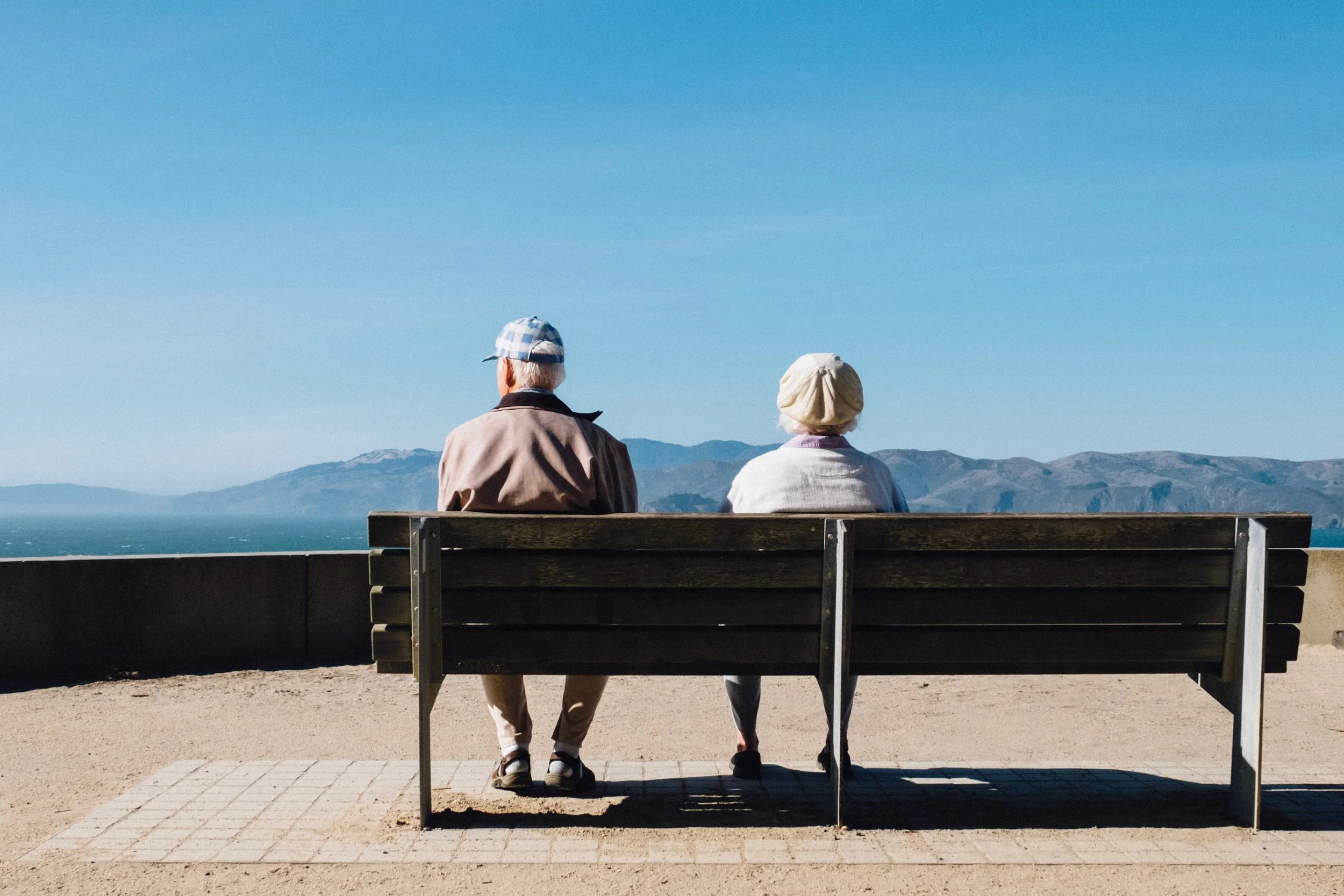






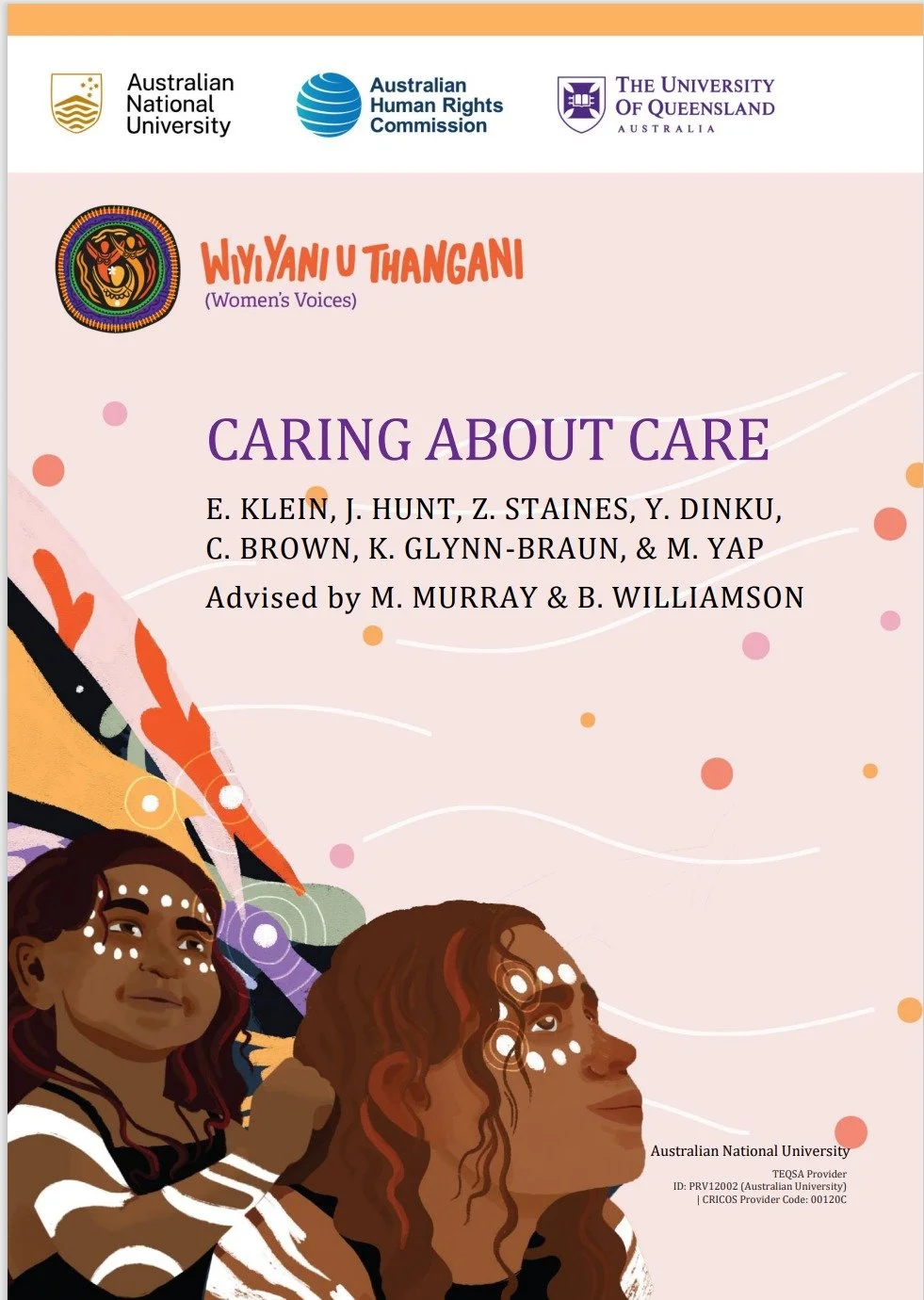



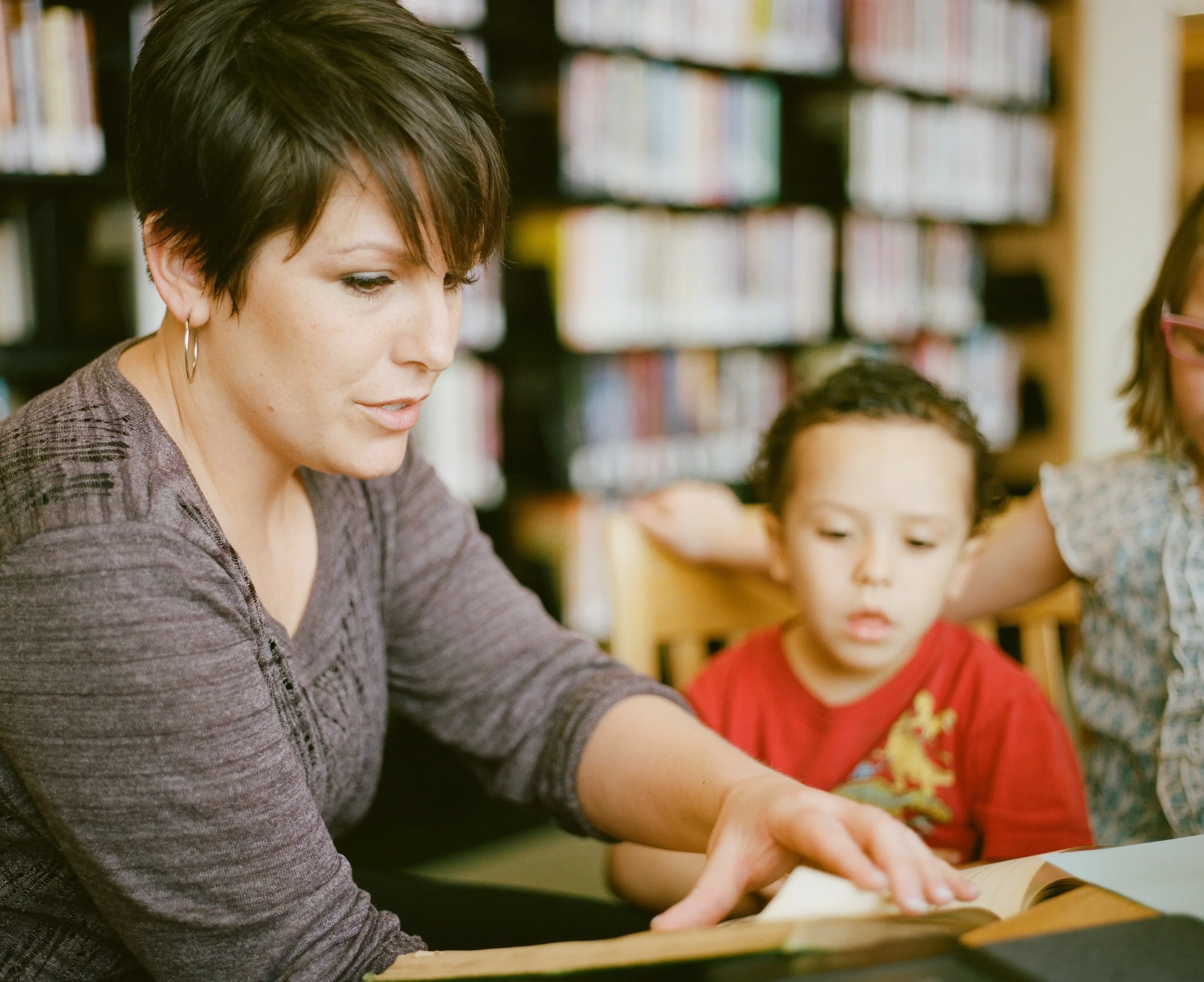










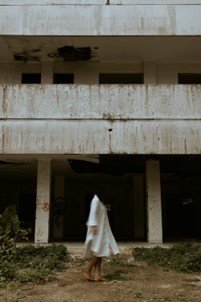
























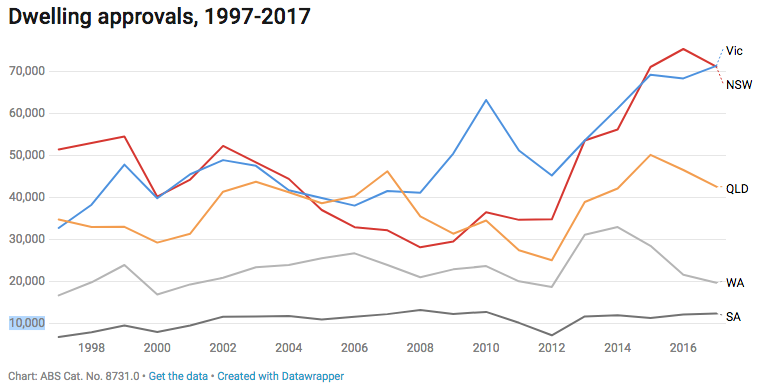












Older women are the fastest-growing cohort at risk of homelessness in Australia, reflecting their increased financial insecurity, which is created by a cocktail of gendered social norms, differential career trajectories for women compared to their male peers, and the tax and transfer system. A key policy lever that is reducing older women’s financial independence is the increase in the qualifying age for the Age Pension. Originally legislated in 1994, this reform has not been fully examined for its impacts on older women, until now. Today’s analysis from Todd Morris (@ToddMorrisecon) shares research he conducted while with the University of Melbourne School of Business and Economics (@BusEcoNews) on how this policy reform has contributed to the financial insecurity of older women in Australia. This analysis first appeared on the Austaxpolicy blog; you can read it in its original form here: LINK The Unequal Burden on Women of Australian Pension Reform. You can read the full article here: : The Unequal Burden of Retirement Reform: Evidence from Australia